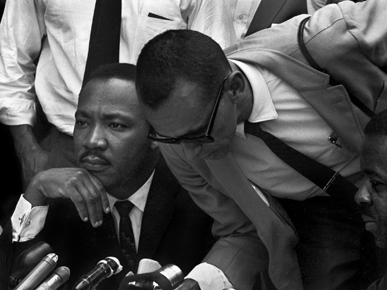Tag: Martin Luther King

From MLK’s “field general” to charter school champion
Civil rights leader Wyatt Tee Walker, chief of staff to Martin Luther King Jr., is a noteworthy bridge between the civil rights and school choice movements. He helped lead the charge for the first charter school in New York. READ MOREWhat would Dr. King say about our schools now?
What would Dr. Martin Luther King Jr. say today about...
READ MOREThe unrealized dream of educational justice
Editor’s note: This is the fourth and final post in...
READ MOREParental school choice spurs surprising reactions from advocates of the poor
As a white person from Iowa, I am always hesitant...
READ MOREMLK and God’s schools
Editor’s note: This is the first in a series of...
READ MOREDr. King, the Dream & educational progress
Fifty years ago next week, Dr. Martin Luther King Jr....
READ MORE

